Funeral Mist
2020-03-03
by Niklas Göransson
On violence and worship, of divine infestation and the neutering of God. In the aftermath of Hekatomb, D. Rostén of Swedish black metal band Funeral Mist speaks for the first time in a decade.
This is an article from Bardo Methodology #6. The same issue also includes conversations with DEAD CAN DANCE, DEATHSPELL OMEGA, SUNN O))), MYSTICUM, ADORIOR, Metalion, Dave Haley, OFDRYKKJA, Michael Denner, NECROS CHRISTOS, TEITANBLOOD, and Wim Hof.
– The reasons for the vast amount of time between albums are manifold. My duties in MARDUK are, of course, the most prominent; a refusal to rush things is another because, believe it or not, creating a new FUNERAL MIST record takes time. I can’t just sit down and write a bunch of riffs and then call it an album. Everything has to grow forth organically through meticulous planning, careful balancing, and drawn-out contemplation. No matter how smug or pretentious that might sound, these factors have been fundamental to the creative process of this band since the very beginning – be it the music, lyrics, or any of the surrounding elements. Always has been, always will be.
What can you tell me about the most recent album?
– At the risk of sounding clichéd, the musical direction of “Hekatomb” is largely a direct continuation of where “Maranatha” (2009) left off, even if it’s probably more of a sidewards step than one forward. The vigilant could probably detect traces from previous releases – “Salvation” (2003), certainly, and possibly even “Devilry” (1998) – although this sort of backwards direction was neither planned nor intentionally applied, it just happens to be an aspect of my song-writing which has, for better and for worse, never really developed all that much over the years. As far as concepts go, this is in many ways just more of the same. More pious madness and twisted visions of religious enlightenment, more insightful darkness, more deceitful light; everything strewn with plenty of new and hopefully improved insights of my personal… let’s call it progress over the last decade, which is, all in all, the timeframe over which I worked on the consummation of this album. So, seen from this angle, the difference is unquestionably rather significant.
The long-anticipated third studio album was released without forewarning by Norma Evangelium Diaboli in June 2018. One swiftly concludes that the classic FUNERAL MIST characteristics remain firmly ingrained in its bedrock – frenzied riffing, hypnotic passages, elaborate vocal arrangements, and a very immersive implementation of samples featuring evangelical pastors, demonic chanting, stirring choirs, and so forth.
– Even if it’s been tempting at times, I feel confident that I haven’t ventured too far astray musically – or conceptually for that matter – with this one, despite the reins being a lot looser here than with MARDUK, for example, where we feel a much greater responsibility to deliver what our followers expect of us… even if that obligation will typically be forced to yield before the might of our bloated egos, most commonly referred to as ‘creative integrity’. Nevertheless, it’s not entirely without satisfaction I reflect over the fact that “Hekatomb” is pretty much exactly what I envisioned this band to be a decade ago, when “Maranatha” first saw the light of day. As far as I’m concerned, it’s a worthy continuation and an honest manifestation of the natural state of FUNERAL MIST anno 2018… but then again, how can it not be?
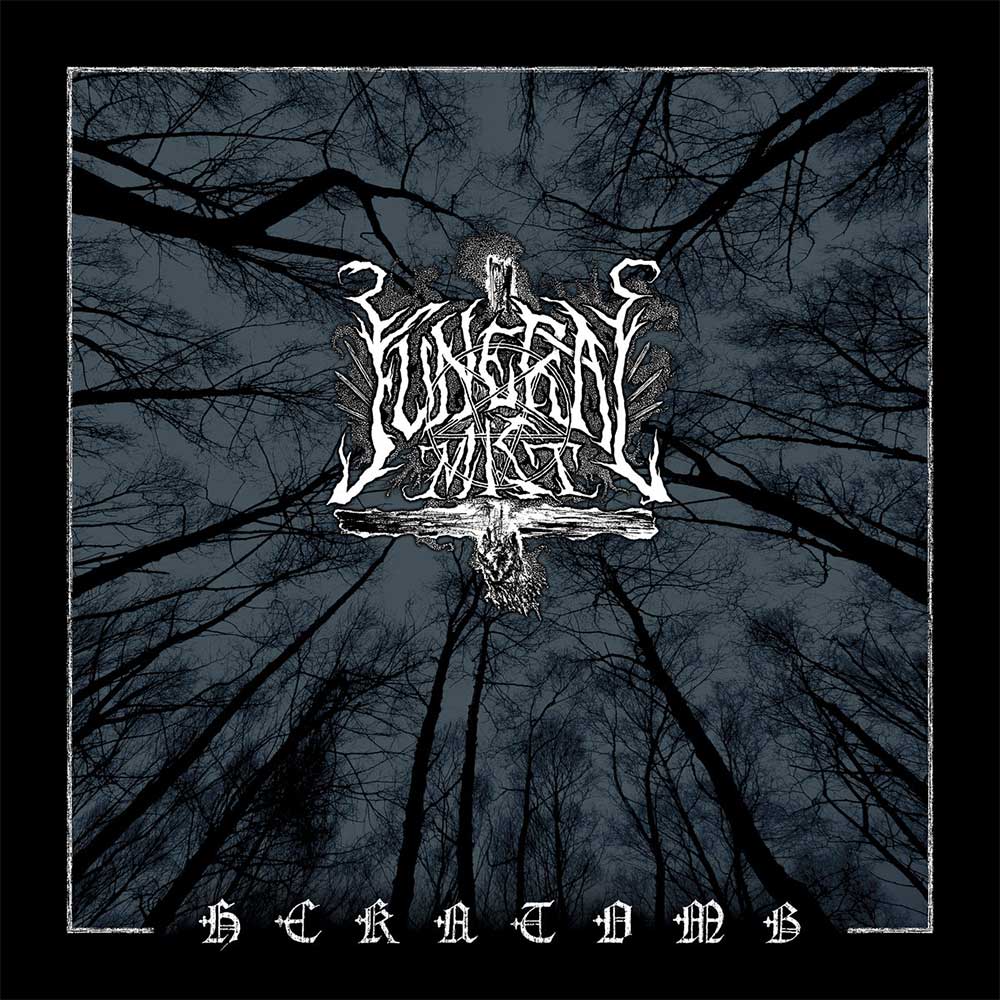
I can’t quite recall if such was the case with “Maranatha”, but in the wake of “Hekatomb” there were some grumblings alluding to perceived similarities between FUNERAL MIST and MARDUK. Besides Rostén’s connection, it’s worth noting that the drums were performed by Lars Broddesson who played with MARDUK between 2006 and 2013.
– Well, both musical endeavours do after all make use of the same vocalist, same drummer, same studio, same producer, and partly the same author of both music and lyrics so, obviously, a few similarities here and there are not terribly unlikely. But, even with the aforementioned convergences in mind – and excluding the very real possibility that I’ve gone mad and therefore have no idea of what I’m talking about – it stands to reason that whoever spouts such claims either hasn’t really listened, doesn’t know the genre, or is tone deaf. But heed well! The knower of black metal will, of course, have no problem to see and hear how the difference between the two bands is no less than immense; even though this insight probably requires closer scrutiny than that of the typical neglectful youth of today, who simply skip to the next track after two seconds of dissatisfaction… much like myself, I might add. A disturbing realisation, nonetheless. Luckily, also a very uninteresting one. I mean, who cares?
One musical outlet of Rostén’s likely to be spared such comparisons is his new project, DOMJORD. A full-length album, “Sporer”, was released in March 2020, courtesy of Vidfare Productions via Norma Evangelium Diaboli and The Ajna Offensive.
– DOMJORD is an all-electronic project I’ve been working on for some time now. As everyone knows, certain situations call for certain music and certain moods call for certain tunes; having long searched for this specific type of sound without ever really finding anything even remotely close to what I had in mind, I simply decided to make it myself. The original plan – if there ever was one – was to just keep the music for myself and bring it out whenever this particular void needed filling. However, the musician in me felt otherwise and couldn’t just leave it at that. It had to be released, if not to reach out to a supposed listenership with the same or similar needs then at least to put an end to a chapter and move on.
This will probably be categorised as dark ambient or similar, but how would you describe it yourself?
– Very melodic, fairly repetitive, somewhat minimalistic – pulsating and hypnotic, lots of contrast, lots of texture and, as just stated, all electronic… and not that I want to tell people how to listen to music, but this is lay-down-close-your-eyes-and-float-away-music. In other words, the complete opposite of everything I’ve ever released, performed, or taken part of before. As for genre classifications, I’ll leave that to others.
Composition for what became DOMJORD began in 2012 and has been an intermittently ongoing process ever since. Paying attention to the arrangements, some pieces bear a strong resemblance to FUNERAL MIST in the way the material is both structured and delivered – numerous overlapping subtle layers as well as a psychotic attention to detail. This seems to be a recurring trait in Rostén’s creative pursuits, and his personality in general.
– I know too many musicians and artists of various vocations who are talented beyond belief and skilled to nothing short of brilliancy, but simply lack the dedication and resolve needed to break through and flourish… which, in the end, of course, just ends up being a waste of everyone’s time. I myself am probably on the opposite end of the spectrum; I might not be the most talented or gifted musician out there, but what I lack in the aforementioned qualities I make up for with sheer determination and a stubbornness bordering on lunacy. Meaning, I simply will not give up on something until defeat is an absolute certainty, which is rarely the case unless you allow it. Moreover, when coming across something that appeals to me on a deeper level, I will cling to it like grim death and try, with the insistence of a fool, to excel at any project or assignment I’ve committed to. And whatever ship I’ve chosen to steer, I will most likely go down with. A blessing and a curse, undoubtedly, but for the most part I see it as a strength and a beast highly useful when tamed – helping me find the perseverance and motivation required to keep initiating and then fulfilling new laborious projects even after all these years. The downside is that everything takes a lot of time and it’s hard to let go of things. There’s always an abundance of details to improve upon, small mistakes which could or should be corrected… clusters of minor problems which seem to multiply by the touch and will, much like a hydra, just grow another head whenever one is chopped off. This is what will ultimately drive me insane…
Another art form once undertaken with equal vigilance was that of the martial; in his younger years, Rostén used to be a competitive kickboxer. He’s previously stated that taking the stage at Wacken Open Air for the first time was, nerve-wise, absolutely nothing compared to hand-to-hand combat in front of thirty spectators.
– I wouldn’t necessarily say that it’s absolutely nothing in comparison, but the utter humiliation you risk in a fight is obviously on another level. Sure, you can screw up on stage and make a fool out of yourself in a plethora of ways as well, but at least you’re unlikely to do so bleeding on the ground. Nevertheless, the statement is accurate enough… it certainly takes a special kind of breed to handle something like that mentally – a warrior’s mindset, if you will. Should you truly want to test yourself within the material realm of flesh and bone, it’s in the crucible of violent conflict you’ll really get to know yourself. What many people don’t realise is that, even at modest events such as the ones I took part in, the greatest foe isn’t the one standing across from you in the ring but is in your own head; the battle against yourself. So yeah, the respect I have for anyone who does this professionally, or in the bigger competitions, will always remain immovable. And sure, combat sports are still an interest of mine these days, even if it’s more of a spark compared to the rampant flames it ignited within me in younger days… ’cause, you know, testosterone is a helluva drug.
In the late 90s and early 00s, Rostén and his social circle were quite notorious in the Stockholm black metal scene – known more for various antisocial activities than actual music.
– I’d like to think this was just a result of the way we were wired – our natural state at the time – and that we merely embraced our element. However, mulling over the subject a bit leaves me speculating whether this wasn’t just a classic case of angry young men egging each other on to stir up the most outrageous shit they could think of; all enhanced with the raging black metal spirit of the time. Paired with our old friend alcohol, this made for a potent mixture which occasionally turned out to be quite explosive… and, of course, being immortal didn’t hurt either. Anyhow, much of what’s been said about us in this era is, as per usual, vastly exaggerated, taken out of context, and distorted beyond proportion. But then again, a myriad of other peculiar happenings and excessive escapades went equally understated, or were simply never brought into the light at all, so I guess it evens things out. But was it at least fun then, one might ask… well, fun enough. Childish? Very! Regrets? None whatsoever.
As certain music styles are commonly associated with various psychoactive compounds, one could perhaps say that alcohol – Europe’s oldest ritual entheogen – has been integral to underground metal culture. The chapter of 90s Stockholm black metal often spoken about with nostalgia would most likely have been significantly tamer, had it not been for the venerated Scandinavian metal tradition of drinking oneself into a senseless stupor before socialising.
– Hard to say, probably not. At least not here in the far north where most of us tend to be either kind of shy or blessed with the congenital mindset of simply being ‘too cool for school’, something which for mainly evolutionary reasons happens to be a big part of our nature. I’d like to say no, that this art form performs just as well without catalysts or enhancers of any sort, which it certainly can and will do to some degree and at specific times or situations. Black metal is, after all, not only the best-sounding music out there but undoubtedly also the most powerful, fully deserving the status of psalms or holy anthems; enchanting and mesmerising to an extent where it becomes more than just sounds, more than just music, rather like a fuel worthy of any cult or movement… religion even. But hey, let’s not kid ourselves, we all know that alcohol has been the chosen elixir for metal music in general since the very beginning – and maybe even more so in black metal, like it or not – as they both pull at the same strings, so to speak… hate, anger, aggression, destructivity, sexuality, violence, and so on and so forth, all in various ways rooted in material reality and the principles of flesh. At the same time, black metal is unquestionably one of the most spiritual forms of music in existence, although a specific type of spirituality deriving almost exclusively from negativity and destruction rather than from their, in these contexts, more commonly occurring counterparts. A sort of inverted spirituality, if you will, but spirituality nonetheless. So, keep giving praise, blessings, and adulation wherever warranted but the spirit of black metal is anti-spirit!
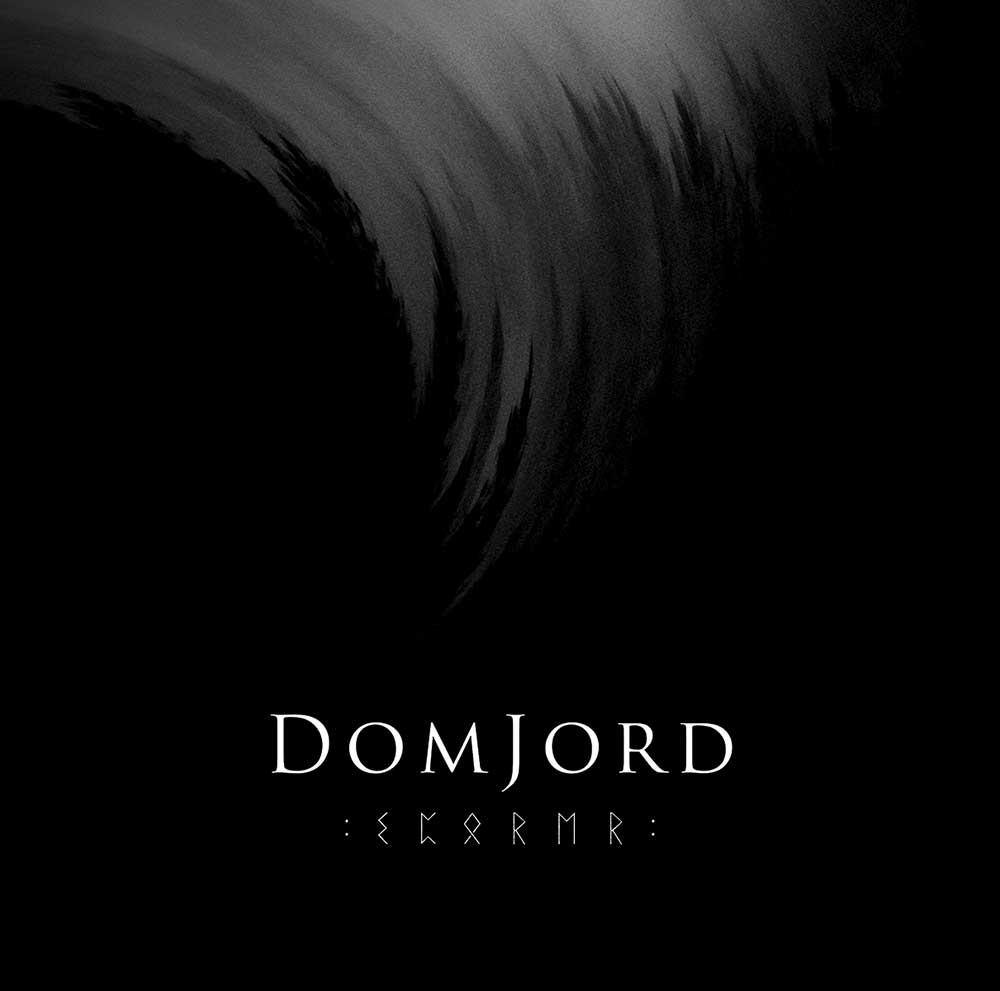
This brings to mind something Dr. Schitz from Swedish underground pioneers MORBID discussed in Bardo Methodology #1. Dr. Schitz, who is a practicing psychologist, argued that truly inspired black metal derives from dark powers of the mind which reside in the what’s known as the reptilian brain, or lower strata. Also known as the basal ganglia, the reptilian brain is associated with various neurological functions such as impulsive behaviour, movement, and emotion – it’s also heavily represented in occult teachings and iconography.
– An interesting take on it, for sure, even though I believe these things can never be explained scientifically. Exploring it from said perspective can be intriguing, I’m sure – with even more fascinating results, no doubt – but will, in the end, change nothing as it’s like weighing the soul or explaining God with math… a clash of two completely different languages which just don’t translate. And even if it could be done, who’s gonna listen? Not a single person in the history of mankind has ever changed his mind about matters of the divine after being presented with simple logic or hard facts, so why even bother? It’s simply a realisation and a journey which must come from within, so I’m afraid I’ll have to side with the brainwashed hordes of religious zombies on this one, declaring: ‘It’s a faith thing.’ But yes, I do agree regarding black metal and its linkage to the reptilian brain; hence my use of the term ‘anti-spirit’, as previously addressed. This interpretation depicts the exact same thing.
A phrase in “Holy Poison” from the 2003 album “Salvation” goes, ’Yes, burn the self to kill the human within.’ I’m curious if this particular endeavour remains much of a priority.
– Having identified them as inherent weaknesses, I, and many with me, devoted much of the early stages of spiritual development to various attempts of purging the self of traits regarded as ‘human’, or as human characteristics, in hopes of giving way to other – and, at the time, more desirable – attributes. Whether this was perceived as a holy mission or merely the juvenile fixation it actually was, I will leave unsaid. An intriguing experiment, nonetheless, or at least a half-hearted attempt at elevating ourselves above the sheep-like masses we despised so, so much. Of course, only to wake up to the harsh realisation that a battle against thousands of years of evolution just can’t be won and will, besides this one valuable lesson, most likely prove to be nothing but a waste of time and energy – even though I suspect a few monks, nuns, gurus, and holy men of various belief systems would disagree.
How do you relate to such aspects of yourself these days?
– I’ve reached the conclusion that, at least in my case, it’s more effective and rewarding to accept, play along with, and use these ugly human urges to one’s advantage rather than just trying to suppress and smother them – which will, more often than not, only result in a vast loss of focus and ultimately negatively impact your main goals and mission in life. But hey, that’s just me. If you believe yourself capable of mastering this art and upgrading yourself in the process… I say go for it! There are certainly sides to us humans that belong in the cesspool, attributes which should preferably be cleansed with fire and so on, but seeing human nature only as weakness? I’ve found myself forced to reconsider. After all, manoeuvred and governed correctly, there aren’t many things in this world capable of competing with the human mind in imagination, willpower, and mental fortitude. Our future potential is essentially boundless, we are demi-gods for crying out loud!
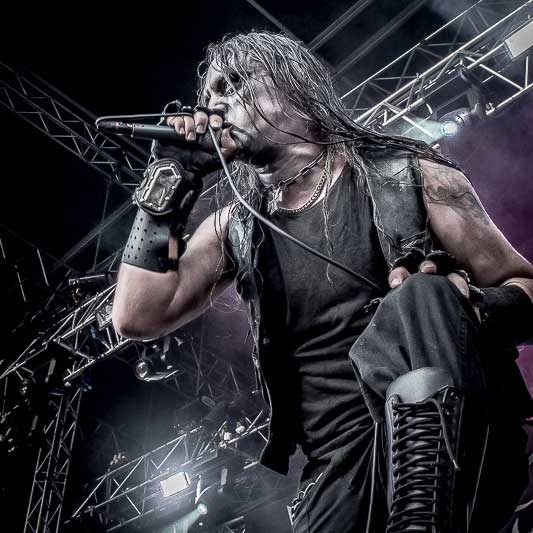
Besides his guest appearance rendition of “The God Supreme” with Iceland’s MISÞYRMING, FUNERAL MIST hasn’t been performed in concert since the mid-90s. Rostén has previously stated that the project will play live again only once he’s figured out how to properly clone himself. Now that such technologies are on the horizon, I’m wondering if it warrants getting our hopes up.
– An assertion which was obviously not serious. However, toying with the notion that it could actually be realised, I fear the amount of time and effort required to prepare for such an undertaking would simply be too overwhelming since the particular sound of FUNERAL MIST would be very hard, if not impossible, to successfully re-create in a live situation. Not that the riffs, drumbeats, or vocal patterns are exceedingly complicated in themselves – but together they form a very distinctive and multifaceted soundscape, constantly interacting in a highly specific yet chaotic balance I believe would be most difficult to capture anywhere else than in a recording studio. This is, after all, the only limitation I take into consideration when writing for FUNERAL MIST, unlike MARDUK where we always have to bear the concert aspect in mind by making sure the material is suitable, or at least possible, to perform live. I know, I’m probably overthinking this but after such a long layoff everything would have to be perfect; there could be no room for mistakes or risk-taking. I’m not saying it will never happen but, as of right now, chances look slim. Also, I fear I’ll have to re-evaluate my position on cloning the lineup, seeing as how that band would have one lousy drummer…
Besides live shows, interviews have been equally scarce – there was one featured in Slayer Mag #20 from 2010, but prior to that the vast majority are from the 90s.
– Interviews were never my weapon of choice, mostly because of the time and energy required contra outcome and reward. Furthermore, linguistics in this form doesn’t come easy for me; in terms of effort, even this modest conversation is the equivalent of climbing a small mountain. But even more so because most interviews I’ve done in the past never really came out the way they were intended, or expected rather – be it due to language barriers, my own verbal clumsiness, or simply journalists being journalists and rewriting the answers to make them more appealing to the reader… which they should to a certain extent, of course, but there have been too many times when my sentiments have been distorted in translation, so to speak, and the entire meaning or point I was trying to make was lost. All good enough reasons why I chose to almost entirely abandon this form of expression a long time ago.
One side-effect of barely giving any interviews for twenty years is that the older features will come to represent the band of today. Several were quite feisty in tone and rhetoric, and I’ve noticed them occasionally quoted in forum discussions and such.
– As for the really early ones… needless to say, they shouldn’t be seen as representative for the FUNERAL MIST of today, or myself for that matter. Those interviews were done with a teenager and were mostly an attempt to come across as shocking and provocative as humanly possible, all in some confounded attempt of weeding out the weak – or, at least, the easily offended. A noble thought perhaps, and undeniably rather amusing at the time but, being entirely honest, they haven’t aged all that well and should probably be looked upon as something best left in the past. In fact, one of the few reasons I’m participating in this very interview here today is to simply not allow my teenage self to speak for myself in the present.
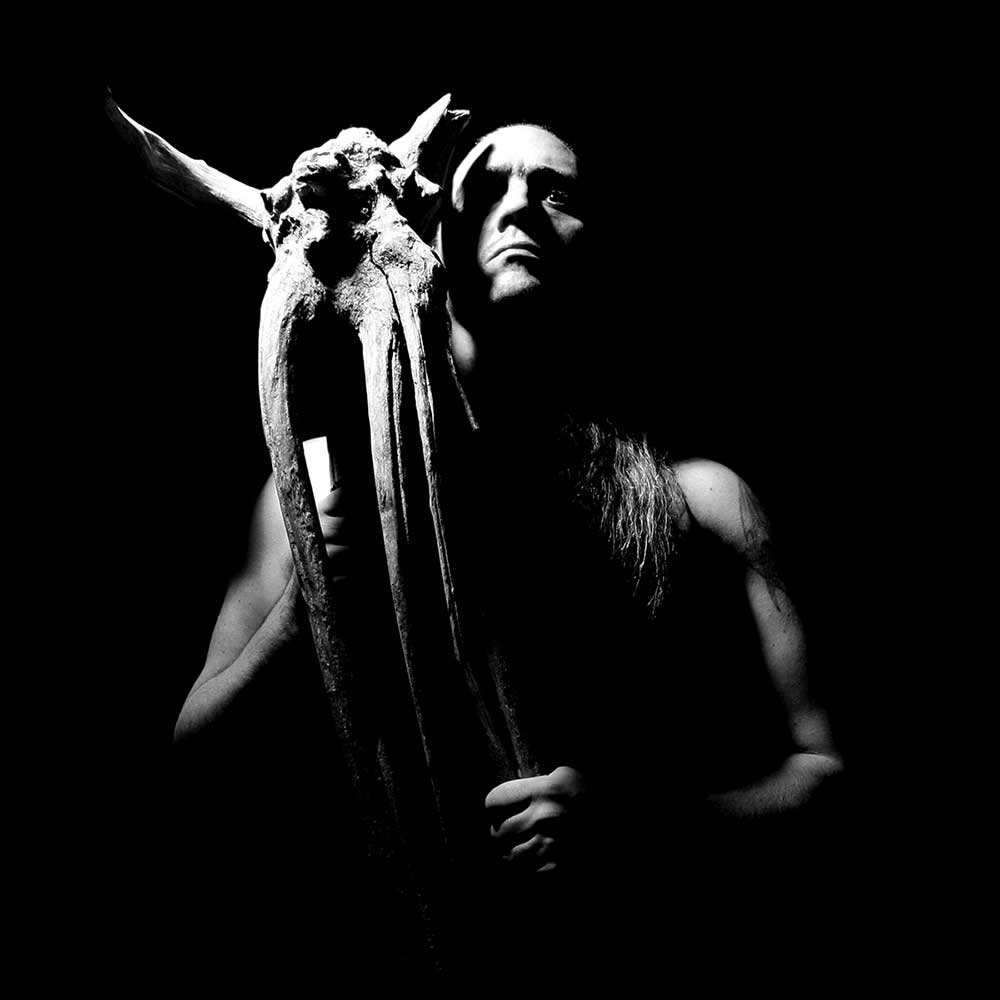
One notable change from the older days is that the new FUNERAL MIST album doesn’t contain quite as much blasphemous or anti-Christian thematic content.
– FUNERAL MIST was never really a platform for that infamous anti-Christian offensive but, as those who are familiar with my work already know, more of an instrument for infiltration and manipulation… with aspirations of infestation! Meaning, various bursts of effort designed to emphasise, elevate, and refine the darker aspects of Christianity and similar misguided doctrines. And who knows, maybe even twist them a tad – all in order to weaken, sunder, and deform – ultimately sapping and possibly even usurping its strength. Whereas MARDUK has always been a vessel for the more straightforward impulses such as aggression, primal violence, raw power, and so on, FUNERAL MIST is more of an outlet for my personal thought processes and worldview; entirely unconcerned with intricate phrasings and hard-hitting choruses but with a heavier focus on subject matters which hold deeper meaning to me, and me only.
Rostén adds that anti-Christian activism isn’t especially relevant to the Sweden of today, seeing as how it’s difficult to compete with the national Swedish church in terms of heretical conduct.
– Needless to say, one naturally tends to attack the things which are, if not in one’s immediate surrounding, then at least in the greater area; to lash out at targets within arm’s reach, so to speak. But, as you know, Christianity here in Sweden is virtually non-existent these days – vanquished, or at least reduced to something so far removed from its former self that it’s hard to even recognise. But it doesn’t end there! It’s now gone so far that the remnants of this cult refuse to simply admit defeat and just lay down to die; instead, they go to extraordinary lengths in humiliating themselves through what seems to be some sort of celebration of their own demise, striding forth in colourful parades filled with distinctly un-Christian-like perversions and constantly trying to reinvent themselves in ways one more bizarre than the other. For example, there are now priests who seek to consecrate divorces the same way they bless marriages, while others produce children’s books in which Jesus is described as ‘queer’ and Joseph as ‘transsexual’. Then we have bishops who claim they have more in common with Muslims than other Christians, as well as churches replacing the cross with an arrow towards Mecca in some attempted display of interreligious tolerance. Lest we forget the new guidelines being proposed, where God is no longer to be addressed as ‘He’.
For anyone outside of Scandinavia, this probably sounds like satirical embellishment but it is most assuredly not. In 2017, the Swedish Archbishop, who has previously proclaimed herself ‘the daughter of enlightenment and reformation’, announced her desire for a more ‘inclusive’ divine discourse in which the Heavenly Father shall be referred to only with gender-neutral pronouns. In December 2019, Malmö’s St. Paul’s Church unveiled as their new altarpiece a modern interpretation of the Garden of Eden in which Adam and Eve have been replaced with same-sex couples of various ethnicities. They stand, suggestively positioned, before an apple tree in which – lurking amongst the branches, presumably seeking to lure the new residents into temptation – we find the illustrious serpent, portrayed here as an elderly transgender woman. Alas, the scholarly theologians eventually discovered that the traditional Biblical interpretation of the viper is one of evil and were thus aghast to find themselves with a potentially transphobic painting on their hands. The piece was taken down after only ten days, followed by a penitent press release.
– The list goes on and on – a constant flow of perpetual self-deprecating efforts from a clergy doing their utmost to adopt the most current popular political views, all in a desperate and equally pathetic attempt at staying relevant. All well and good, if that’s the approach you want to take, but everyone knows it’s anything but the Christian way. It’s as dishonest as it is spineless and you’re fooling no one. What keeps fascinating me though, is how lightly these characters look upon the transformation of what they allegedly believe to be the actual word of God into something so completely foreign it’s hard to even recognise; at times, even to a point where it directly contradicts the original meaning… all in order to fit into the current state of their respective society whilst still being able to retain their religious identity or whatnot. Is that really how lightly you take the will and words of your almighty God? Speaks volumes, doesn’t it?
What kind of societal impact do you observe from this?
– One problem is that when an entire society discards religion in the fashion we have over here, then other, equally unfounded, ideologies tend to move in to take its place. As you know, most of us are inclined to feel kind of lost without something higher to believe in since that God-shaped hole in our hearts – sometimes referred to as anxiety – will sooner or later have to be filled. We can see the seeds of this sprouting even now. Take the climate movement for instance, painstakingly saturated by all the characteristics of a religious cult: doomsday preaching, overzealous public sermons, full-on witch hunts, and so on. They’ve even invented a new messiah, for pity’s sake!
The last few decades, the Swedish church has been highly prolific in a number of polarising societal issues. Their own analysts have mentioned political activism as a strongly contributing factor in the ongoing membership crises, with about 90,000 Swedes leaving on an annual basis.
– It’s plain for all to see that Christianity these days, along with organised religion as a whole for that matter, has very little, if anything, in common with actual religiosity or any genuine form of spirituality but is more focused on politics, power, and religious identity. Yet even there they’re losing grip, their halcyon days are over… finito, passé. But sure, we could keep stomping the ecclesiastical corpse until Kingdom Come for all I care, and we probably will – even if with slightly less passion. But right here and right now, it seems kind of pointless. Sure, there might still be the rest of the world to cure but, on these lands, this particular foe has already been thoroughly trampled into the mud. My only gripe with this is that we were not the ones to defeat them; others, even more cunning and demonic, have beaten us to the punch in what seems to be a rare case of ‘the enemy of my enemy is not my friend’. So, yeah, the world truly is upside down… we are now the saints and the angels! And even if Christianity is deeply entwined with our history and culture after being part of our people and nation for centuries – and could, viewed historically, probably be argued to have been beneficial to parts of society – we can still feel deep in our veins that this doctrine is to these domains unnatural and belongs, just like any other desert religion, in the desert.
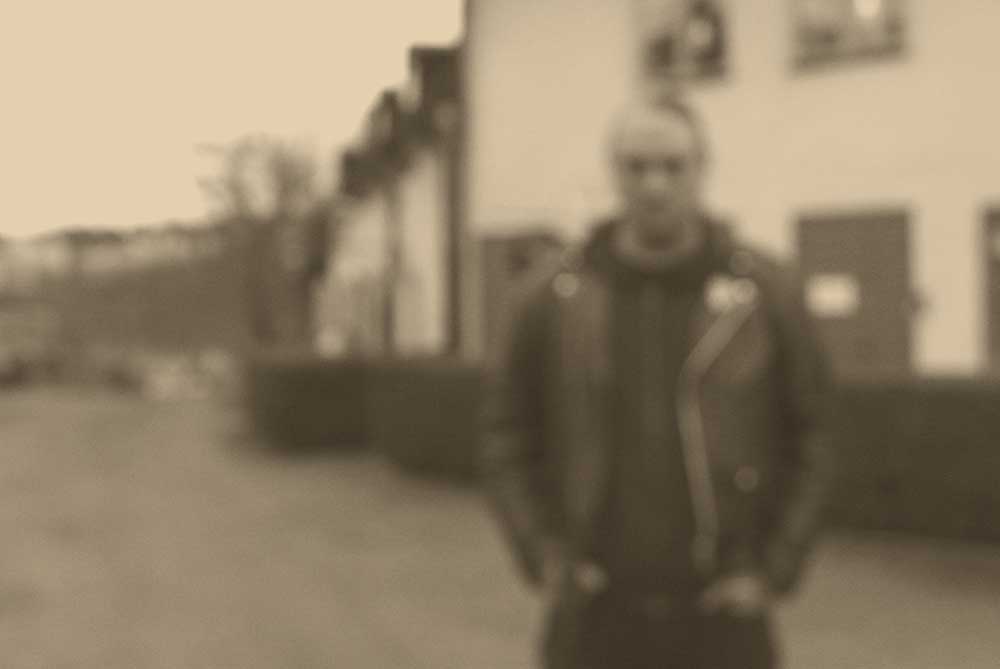
This was an article from Bardo Methodology #6. The same issue also includes conversations with DEAD CAN DANCE, DEATHSPELL OMEGA, SUNN O))), MYSTICUM, ADORIOR, Metalion, Dave Haley, OFDRYKKJA, Michael Denner, NECROS CHRISTOS, TEITANBLOOD, and Wim Hof.



